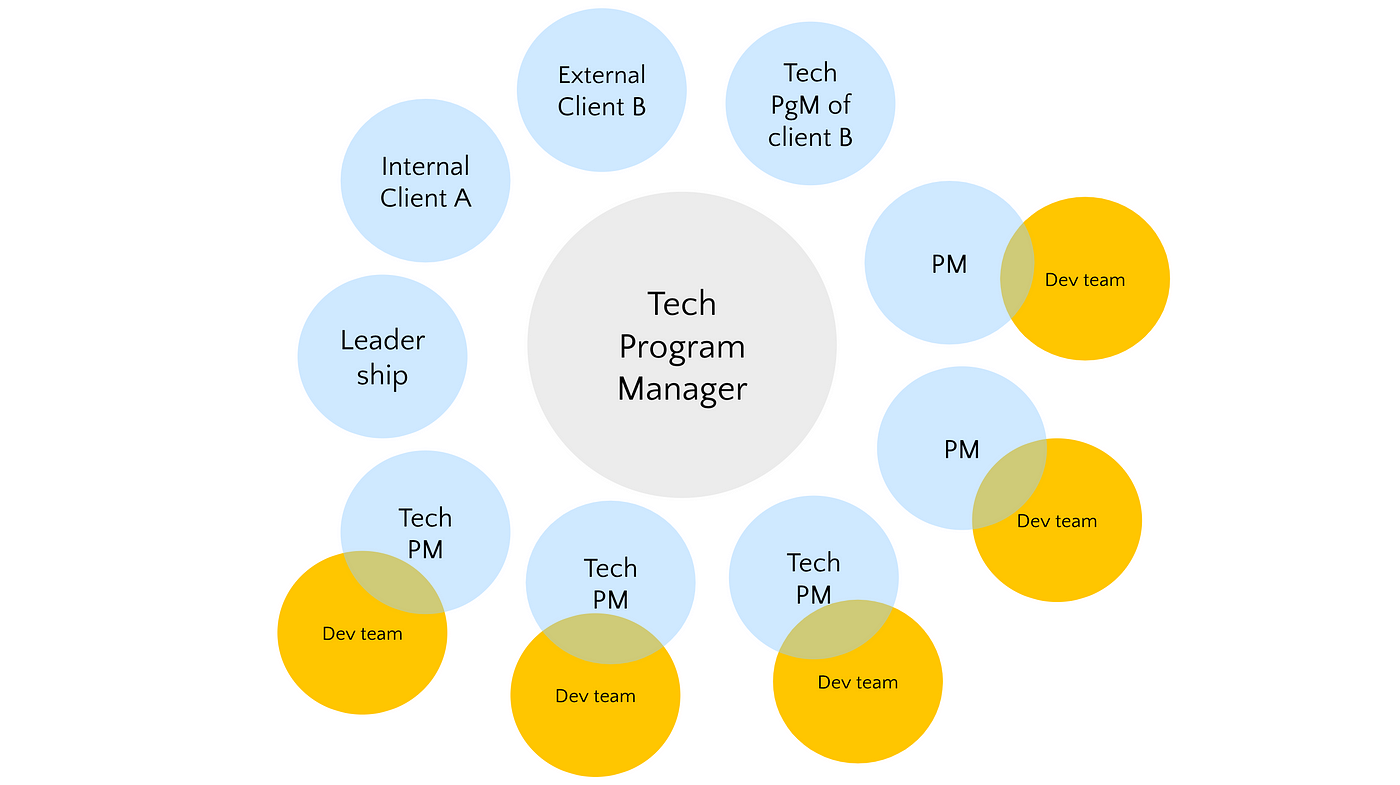All Categories
Featured
Table of Contents

Communicate these issues to pertinent job groups, comply with via until there's an option, and report the customer resolution. Make certain that all projects are following their budgets and delivery times. Make a routine of tracking task landmarks and dependences. Include these things in your regular reports. Collaborate with various other appropriate departments, consisting of the item, sales, and assistance departments.
Create a system to plan, track, and file each and every single program you manage. Provide routine responses to core teams, consisting of the product group, design group, and development team. A bachelor's degree in computer technology or a related area is required. A minimum of 4-6 years of experience in program management with IT tasks is vital.
Development is the name of the video game when it comes to the technology industry, and within that standard, there's a behind-the-scenes orchestrator guaranteeing every little thing runs seamlesslythe Technical Program Manager (TPM). This unhonored hero plays a pivotal duty in the success of technology jobs, bringing order to turmoil and making sure that the gears of development turn efficiently.
Why is a To Become A Tpm critical in tech program management?
It's a fragile dance in between setting enthusiastic goals and making certain assumptions stay securely grounded in reality - how to become a tpm. technical program manager certification. It's not simply about developing a plan; it's about implementing it flawlessly. TPMs put on the hats of both visionary organizers and pragmatic administrators, making certain that every action aligns with the overarching task objectives

In the large landscape of technology tasks, reliable communication is the bridge that connects disparate teams and stakeholders. Here, TPMs radiate as proficient translators, decoding the detailed language of tech for non-technical stakeholders. They connect the gap, ensuring that every person, regardless of their technical background, comprehends the job's goals and progress.
They possess the foresight to recognize possible risks, ranging from unpredicted technical obstacles to exterior elements beyond the team's control. Threat monitoring isn't regarding getting rid of uncertaintiesit's about encountering them head-on. TPMs develop approaches to mitigate risks, making certain that the project sails with stormy weather condition with durability. They are the guardians of task stability, frequently scanning the perspective for possible interruptions and prepared to deploy countermeasures when required.
Right here, TPMs take on the duty of allocators-in-chief, strategically dispersing sources to enhance effectiveness. From human resources to budgeting, they ensure that the project has the best people with the appropriate skills and the necessary tools at every phase. Continuous assessment and adaptation are essential. As the project landscape shifts, TPMs reallocate sources dynamically, making certain that the group continues to be nimble and responsive.
How do I get certified as a Tpm Interview Questions?
In a globe where technology is king, maintaining top quality requirements and stringent quality control is non-negotiable. TPMs, hereof, end up being the gatekeepers of excellence. They established stringent criteria for every single element of the project, from code to design, making sure that completion item satisfies or exceeds the specified requirements.
TPMs develop a society where excellence is not simply a goal but a practice, permeating every element of the job. Through their careful oversight, they impart confidence in stakeholders and contribute to the lasting success and online reputation of the organization. Being a successful TPM calls for greater than just a propensity for task management.
What is the roadmap to becoming a Tpm Skills For Tech Companies?
While TPMs may not be coding wizards, they need a strong understanding of the technological landscape. This includes knowledge with the modern technologies involved, an awareness of market trends, and the capability to comprehend the implications of technical decisions. Leading without authority is a TPM's superpower. They must influence and lead groups composed of individuals from numerous divisions, each with their very own goals and concerns.
In the tech globe, troubles are not roadblocks however challenges waiting to be addressed. TPMs require a knack for imaginative problem-solving, believing on their feet, and adjusting to unexpected difficulties. TPMs are the communication nexus of a project. Whether it's communicating intricate technological details to a non-technical target market or fostering partnership among team participants, efficient interaction is non-negotiable.
Strategic thinking includes expecting obstacles, envisioning the project's trajectory, and straightening it with wider organizational goals. As innovation evolves, so does the duty of the TPM. Over the last few years, the landscape has seen a change in focus from standard task administration to an extra dynamic and flexible technique. Agile has become greater than just a buzzword; it's a way of living for lots of TPMs.
The assimilation of growth and procedures, understood as DevOps, has actually come to be a keystone in the TPM's toolkit. This strategy highlights continuous integration, continuous distribution, and partnership between growth and procedures teams. In the age of large data, TPMs are increasingly relying upon data-driven understandings to inform their decision-making processes. Analytics and metrics play an essential duty in evaluating job efficiency and making educated adjustments.
What are the career prospects for a Tpm Salary Expectations?

Unlike traditional task supervisors, TPMs need to deeply recognize the technological facets of the jobs they manage. This twin competence enables them to communicate with design teams efficiently, recognize technological challenges, and guarantee that jobs are finished on time and within budget plan. Whether you're aiming to employ a TPM or turn into one, understanding the duties and skill sets required is crucial for success in the technology industry.
The courses cover necessary topics such as project lifecycle administration, risk evaluation, resource allowance, and software program growth processes. With a concentrate on real-world applications, our training guarantees you are prepared to deal with the complexities of technical jobs in any kind of industry. Making a qualification can substantially improve your career prospects, showing to companies that you possess the expertise and skills required to prosper in a TPM duty.
From start-ups to Fortune 500 firms, organizations around the world are looking for certified experts to lead their technical programs. Whether you're wanting to hire a TPM or want TPM tasks, TPM Institute can aid you navigate the job market and attach you with the best opportunities. Our training courses are not nearly learning; they are regarding introducing your occupation in one of one of the most in-demand fields in the tech industry.
Our are devoted to providing you with the best feasible education, providing understandings grounded in real-world experience. They are committed to helping you accomplish your accreditation and be successful in your profession. To find out more regarding our programs and certifications, at Take the following action in your occupation with TPM Institute and become a leader in technological program administration.
Top Technical Program Manager Jobs
There's a tendency for individuals to incline extremes when conceiving technological program managers. They're often described as either always taking part in coding or not at all. The truth exists is a spectrum of technological deepness among TPMs, and this frequently varies by project and client. Some jobs require a leader with simply sufficient technical deepness to recognize modern technology architecture and trade-offs.
They can verbalize complicated technological principles to non-technical stakeholders and promote collaboration between diverse groups. TPMs excel at determining and fixing concerns that arise throughout task implementation, guaranteeing that tasks stay on routine and within budget. They motivate and guide their groups, promoting collaboration, development, and continuous enhancement. TPMs' responsibilities can differ relying on the company and the specific job they're dealing with.
TPMs function to make sure that all employee are functioning towards the exact same purposes, preventing miscommunication and thrown away initiative. They expect and adjust to adjustments in job requirements, ensuring that tasks can pivot efficiently when needed. TPMs proactively address possible issues, minimizing the probability of job hold-ups and failures. They motivate their teams to trying out originalities and technologies, driving continual enhancement and development.
TPMs function to guarantee that all employee are functioning towards the same objectives, avoiding miscommunication and squandered effort. They anticipate and adjust to modifications in task requirements, guaranteeing that projects can pivot smoothly when needed. TPMs proactively attend to potential problems, reducing the likelihood of job delays and failings. They motivate their teams to experiment with new ideas and innovations, driving continual enhancement and growth.
Table of Contents
Latest Posts
The Ultimate Software Engineering Interview Checklist – Preparation Guide
Apple Software Engineer Interview Process – What You Need To Know
The Best Websites For Practicing Data Science Interview Questions
More
Latest Posts
The Ultimate Software Engineering Interview Checklist – Preparation Guide
Apple Software Engineer Interview Process – What You Need To Know
The Best Websites For Practicing Data Science Interview Questions